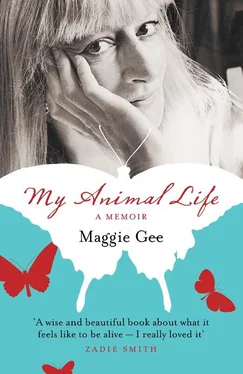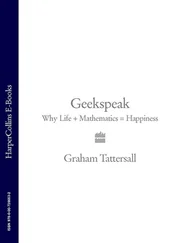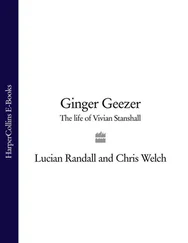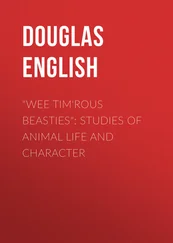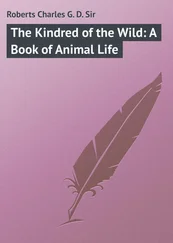In fact, it was just a phase, and soon over. Never before, or since, did Rosa lack friends. I was over-reacting, over-deducing, because I over-identified.
Recently we reminisced about that time. Perhaps it was that the children were at the age where they started to notice difference, and she was different, one of only three white girls in her class. She said, ‘I got something good out of it, though, because I had to find something to do in the playground, and I worked out how to fly. If you did a leap, and then another leap, and a leap upon that leap, you would fly. And I used to go round the playground trying it out.’ And I said, ‘But that’s just like me! Because I didn’t want anyone to know how lonely I was at the village school, when we moved to Watersfield, I used to walk about the playground very fast, on my own, from one side to another, looking business-like, pretending I was going somewhere.’
And she said, but laughing, ‘That is sad. Sorry, Mum, you’re not like me.’
In ways that I don’t, she believes she can fly. She can walk into a room without anxiety. She expects to be liked, and mostly people like her. For that she can thank Nick as well as herself, the luck of his sociable, confident genes.
Now she has a bewildering number of friends. Somehow she has kept some junior school friends, and all her big group of grammar school friends, and has made a new cast of university friends, and another lot from the time she spent in Paris, and another lot, when she was living in Granada …
I couldn’t cope with Rosa’s Bacchanalian procession, the constant flashing of electronic signals, texts and messages and flickering face-books, drinks and dances, travelling, feasting, for she’s also become an imaginative cook after years of only eating white bread and pasta, using every kind of vegetable, meat and fish, always trying new dishes on people she loves. Which is sometimes us, so we are lucky. Her life is like a lake I once saw in Uganda, up in the hills, deep water spread with green leaves and pink flowers, entirely covered in water-lilies, a wondrous tangle of youthful faces, bright and specific in the morning light, where one is always opening, another closing.
(And on them she smiles: but on us she scowls, for we are her parents, and now things have changed, for we are no longer the centre of her universe, the sun and moon of the adoring small child. Now she is big, and we are just the parents. We say boring things, like ‘Have you got any washing?’ or ‘What time is your train?’ or ‘Did you put my jacket back in the cupboard?’ or ‘Stand up straight, darling. Then you’re beautiful.’ Thus do the old parents oppress their offspring, and she fights back, because she can. ‘Are you trying to be funny, Mum?’ ‘BO-ring!!’ or ‘Pressure, pressure, you always give me pressure,’ or ‘It’s none of your business.’ ‘Leave me ALONE!’ The same-sex pair have the harder time, for fathers tend to adore and offer lifts, whereas mothers afflict daughters, and daughters mothers, as they try to find two different ways of being women. Both members of the dyad know the link cannot be broken, but on bad days it feels, to her and to me, as if a heavy mini-me is jammed on our shoulders. Mine stares round into my face, kvetching and complaining. ‘Mum! Mu-u-m!’ ‘Rosa! Rosa!’ She is me, I am her, but we have to be other. And then suddenly my big girl says something funny, or I kiss her cheek, and we are in each other’s arms, she is taller than me but we dance down the hall, and her kisses hit air because I have grown smaller; seconds later, she flies through the door and has vanished.)
‘Read a book,’ I say. ‘Do you ever read a book?’ or ‘Do you think you should stay in tonight and sort out your room?’ But secretly I’m pleased that Rosa is so busy.
Nick and I have — do we? — (we have to say goodbye, because she has to go away into her adult life) — a lovely grownup daughter. She is twenty-two now, and has just been abroad for the third year of her languages degree at Durham. She is tall and strong and beautiful (when she stands up straight) — a jeune fille en fleur , full of jokes and ideas, writing songs and articles, road-running, cooking. But I haven’t stopped worrying: that is the cost. I thought I had mysteriously escaped it, but love extends the surface area of your skin. You can soak up more light, you can be endlessly surprised, but you are also more vulnerable.
When she was abroad, if she was quiet, had she been abducted? My heart leaped when the Skype symbol flickered at the bottom of my computer screen and her dear, her pixillated face appeared, her laughing mouth and high, wide forehead, or just a Skype message, when the screen didn’t work or she had just got up and didn’t want me to know it, ‘are you there, madre?’ brief, no capitals, but presaging a mutual helter-skelter of words, surreal jokes, gossip, confessions — or I open my email and see the capitals: R RANKIN-GEE. Hurray, hurray.
I only want her to be all right. If she is all right, and Nick is all right, my basic emotional tripod is steady.
I posted her parcels of porridge to Spain. ‘Mum don’t worry, I’m fine,’ she said. She throws back smiles, insults, garlands, but like life itself, she has come and gone, my beautiful girl, my heart, my Rosa. We stay where we are, and they go on.
‘If the meaning of an animal’s life is movement …’
The illness passed also, the RSI, the visit of old age with which this chapter began. I was grateful when I could write again, longhand, slowly, and fetch a little shopping, though even one light plastic carrier could bring the pain in my shoulders back. The wonder is, the body tends to get better from everything that will not kill it, and very slowly, I did get better, and movement came back, the joy of movement. I started swimming. I was running again.
But something had happened to my work. I had taken it for granted, perhaps, my luck, and luck must never be taken for granted. Life was too busy. I grew too busy. Nick was successful, at the BBC, and the price of success was making many features, ambitious features involving travel, and other programmes which, his craftsmanship insisted, could not be made in the time allotted. He had to work evenings, and sometimes weekends. My agent had encouraged me to leave Heinemann in search of more money, and negotiated a sizeable advance, a £75,000 two-book contract, with Jonathan Warner, the young head of HarperCollins’s literary fiction list, Flamingo. Lost Children came out in 1994. Now it was time to write the second. But Jonathan had committed suicide, leaving a wife and daughter, not long after Lost Children was published, a dreadful piece of news that hit everyone hard. The RSI had slowed my production, and Nick couldn’t help with Rosa very often. I was left, in the end, with less than six months to write and deliver the second novel. I went too fast. I rushed it. I fluffed it. The book I delivered, called at that stage The Keeper of the Gate , but eventually The White Family , would one day bring me great satisfaction, but unwisely, I submitted something less than perfect.
It was unlike me; I am a control freak, and I know that my work is not ordinary, not universally pleasing or lovable, and so needs the armour-plating of technique. Do not let yourself be vulnerable .
But it’s hopeless advice. We’re all vulnerable. Tread carefully, young writers in the literary jungle.
the literary jungle
In retrospect, I can see that what happened was a motorway pile-up: too many causes. Two years earlier, researching Lost Children , I made some visits to a centre for the homeless in east London, and sat in on their group therapy sessions. Many of the stories stretched back to childhood; one man had been sexually abused in a Catholic children’s home; one woman abandoned by schizophrenic parents. But more of them had foundered in middle age, when too many things went wrong at once. Within the same few months, a relationship ended, they were made redundant, illness struck, they were declared bankrupt. And they fell through the net. They were worryingly like all the people I knew; they had no special tragic flaw.
Читать дальше
